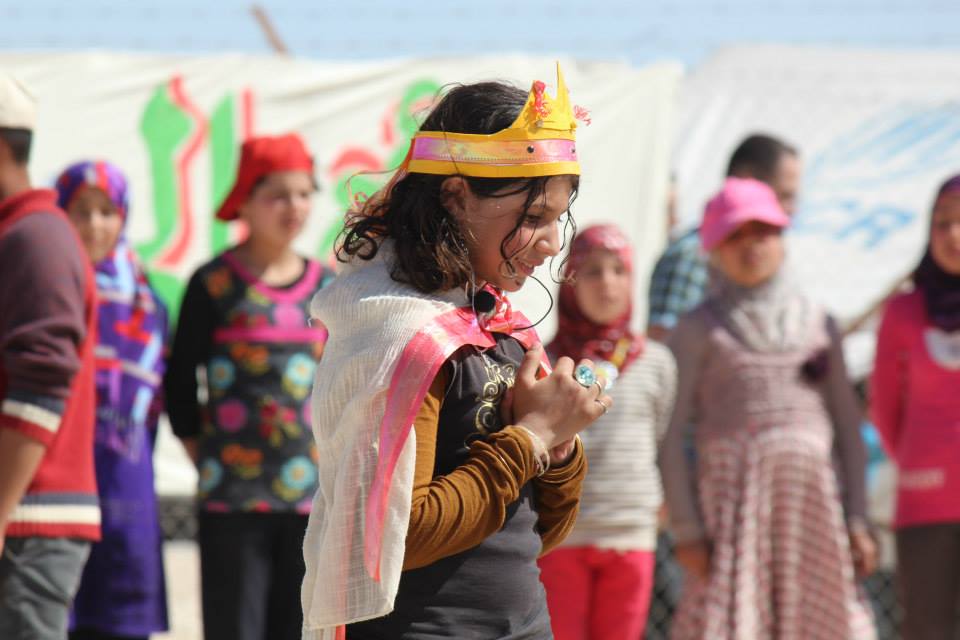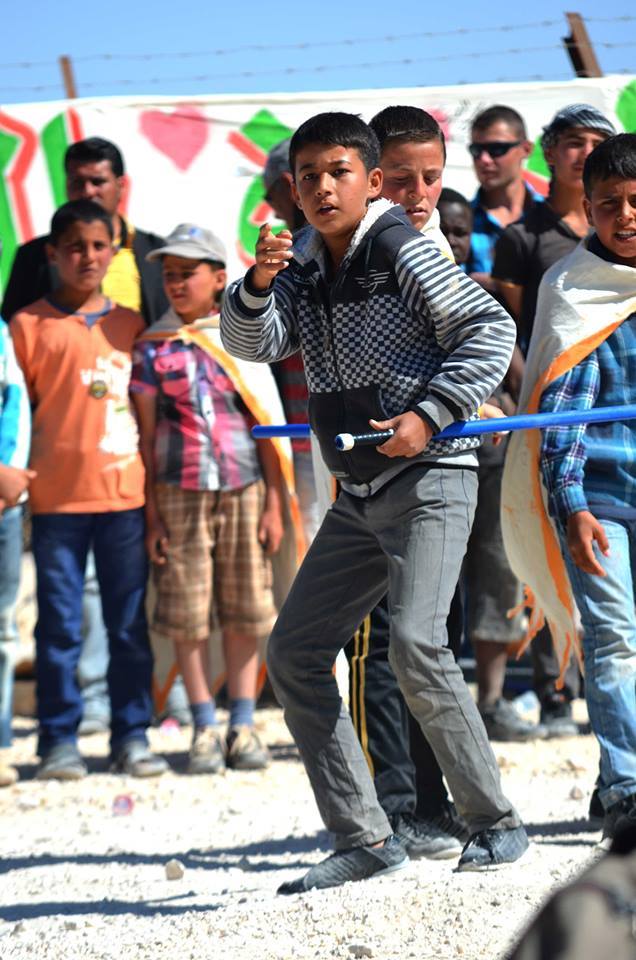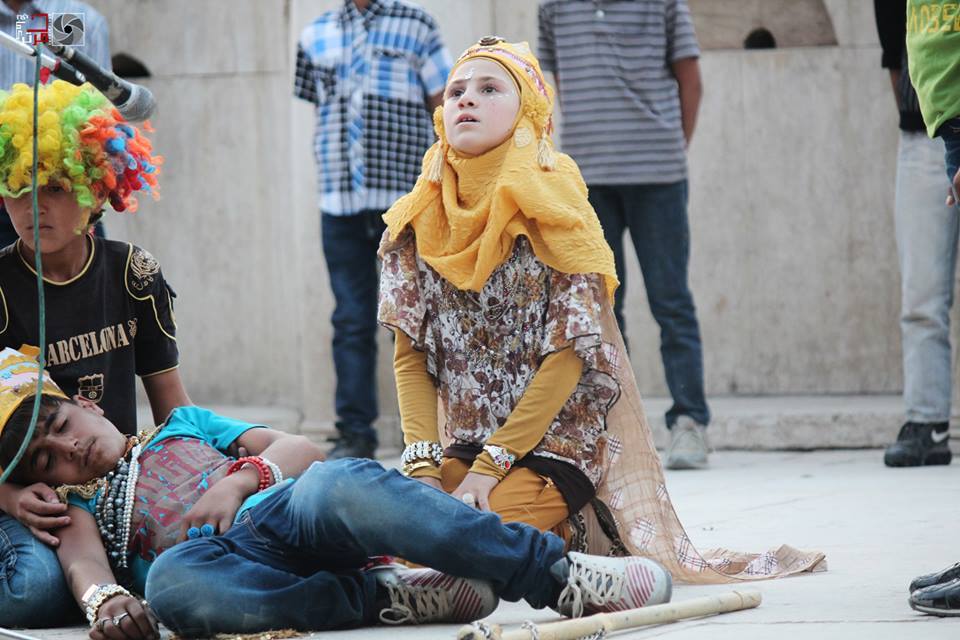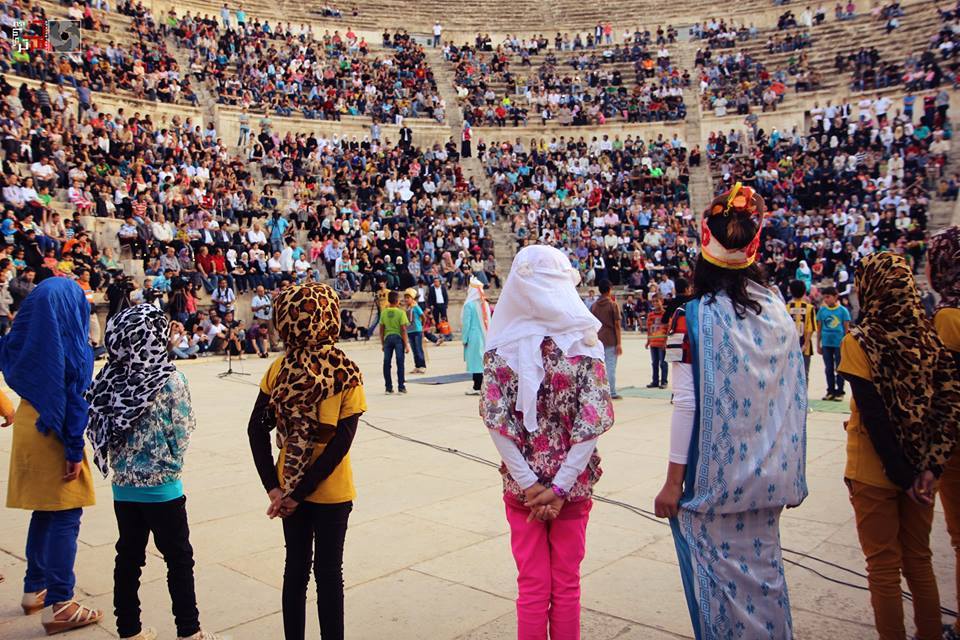Shakespeare in Arabic is a strange thought for those of us who associate the Bard with formal, old English. But for the kids of Zaatari refugee camp in Jordan, Shakespeare in Arabic is a lifeline.
Shakespeare in Zaatari was established by a somewhat unlikely candidate. Nawar Bulbul was an actor, well-known for his part in a popular historical drama show called Bab al-Hara (the kind of show everyone watches, but only your grandma admits to). When the revolution began in 2011, he participated in demonstrations in his home city of Homs. His enthusiasm made him a target of the government, and a pro-government friend told him he could clear his name by appearing on TV to denounce the protests. “I told him I would think about it, and a week later I was out of the country,” Bulbul said.

Photo from “Shakespeare In Zaatari” Facebook page
He moved to Jordan and wound up establishing a programme for Zaatari’s nearly 60,000 children. The statistics vary, but fewer than a quarter of school-aged children attend regularly. Parents fear their children will get sick in such crowded spaces, and a lack of alternative activities and programmes means that children are often kept at home, or spend their time roaming around the camp. Bulbul’s first condition of enrollment in his programme was that each child attend school.

Photo from “Shakespeare In Zaatari” Facebook page
Finding space was a challenge, but Bulbul managed to secure a tent. The white canvas is decorated with a portrait of Shakespeare, and clear Arabic lettering in bright blue paint: Shakespeare’s Tent. Hardly any of the one hundred children who enrolled had heard of Shakespeare. “Mr. Nawar told us he is a writer from the Western countries,” said Wiam Amari. “He told us that the stories he writes are very important and very beautiful.”
Wiam played King Lear’s youngest daughter Cordelia in the programme’s most recent performance, which featured excerpts from “King Lear” and “Hamlet”. The show was held at the ancient Roman amphitheatre in Amman. Parents, friends, and relatives of the performers filled the rows closest to the stage of the massive arena. “In ‘King Lear'” Bulbul explained, “there are many paths you can take. I focused on the main story—an aging king giving away his kingdom to his daughters. I want to say the struggle is between hypocrisy and honesty, and honesty is better.”
The performers’ parents were keen to support their children. “I am the mother of King Lear,” declared Intisar al-Baradan, who brought twenty relatives to the show.

Photo from “Shakespeare In Zaatari” Facebook page
Though there was no mention of politics throughout the show, it is difficult to not read into the immortal words of the plays. “‘To be or not to be…’ is one of the most important sentences in the world for me,” Bulbul said. “Who am I? Shall I take action or not? This applies to our revolution.”
Dressed up in paper crowns and heavy chains of plastic beads, the children performed the scenes they’d been rehearsing for weeks. The chorus shouted down Lear’s oldest daughters and encouraged the youngest, and the audience joined in happily. And at the end of the performance, amid the crumbling stones, the children climbed the worn stone steps of the amphitheatre all the way to the top and chanted together in English: “To be or not to be!”

Photo from “Shakespeare In Zaatari” Facebook page
Quotes taken from Shakespeare In Zaatari Facebook Page, New York Times, and The Economist.